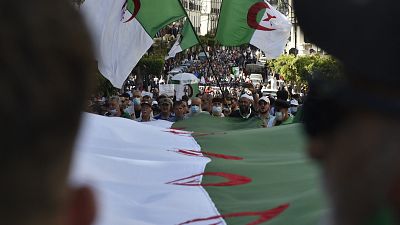In branding peaceful political opponents as “terrorists” and acting in connivance with some extremist groups in the Sahel, Algeria steadily eroded its credibility as a reliable partner in the global effort to eradicate terrorism.
Connivance
In the wake of the 9/11 attacks, the Algerian regime marketed itself as a western ally in the war on terror, to sugarcoat itself and derail international attention from the violations of the regime during the bloody civil war in which at least 200,000 people died.
Thanks to western support, Algeria, the hotbed of terrorist groups in all north Africa and the Sahel, managed to export the most potent terrorist groups to its neighbors in the east (Tunisia and Libya) and the south (Mauritania, Mali, Niger and the wider Sahel).
In September this year, Mali’s representative Issa Konfourou to the UN in New York has openly accused Algeria of backing terrorist groups in the restive north.
Mali and other Sahel countries have for years been battling terrorist groups with roots in Algeria. Chief among these is Al Qaeda in the Islamic Maghreb, which emerged from the Group for Preaching and Combat, a group led by fighters in the Algerian bloody decade.
The ambivalence of Algeria with regard to collective anti-terrorism efforts in the Sahel stems from its connivance with some terrorist leaders in the region. Algeria has a long history of nurturing connivance between Algerian security services and some terrorist groups This dates back to the black decade in the 1990s when the domestic intelligence service (DRS) used extreme GIA members to discredit the FIS Islamists. Many of the groups wreaking havoc in the Sahel have former GIA fighters or leaders.
Algeria has also used terrorist leaders in the Touareg community such as Iyad Ig Ghali to keep both the nationalist ambitions of the Touaregs in Mali and the central government in Bamako in check.
Algeria’s unilateral approaches and patronizing attitude with its Sahel neighbors have so far backfired. Instead of being invited to key security meetings, Algeria is isolated more than ever by its Sahel neighbors. Due to its stance on terrorism in the region, relations between Bamako and Algiers are at their worst ever.
Meanwhile, Algeria has turned a blind eye on the connections between the Polisario and terrorist groups in the region, which both engage in all sorts of trafficking to sustain their operations, taking advantage of porous borders and Algerian protection.
Sham terrorism charges to silence dissent
Algeria has also been using sham terrorism charges and designations to silence political opponents and groups.
In its most recent terrorism report, the US State Department said that the designation of the Kabylie independence movement as terrorist was politically motivated.
The Algerian government has also branded the Rachad Islamic opposition group as terrorist. A designation that was rejected by the US State Department.
Both MAK and Rachad have their leaders in exile, mostly in France and the UK and have never called for violent acts.
The French government also dismissed as a “fictitious”, Algeria’s claims that French agents were preparing a terrorist plot in the country.
International observers, including UN experts, have raised concerns about Algeria’s use of anti-terrorism laws to crackdown on dissidents, activists, and human rights organizations. These actions have been described as part of a broader strategy to maintain control and silence critics.
As the Algerian repressive regime continues to use terrorism to silence dissent, the west will have to review its anti-terrorism cooperation with Algiers.
